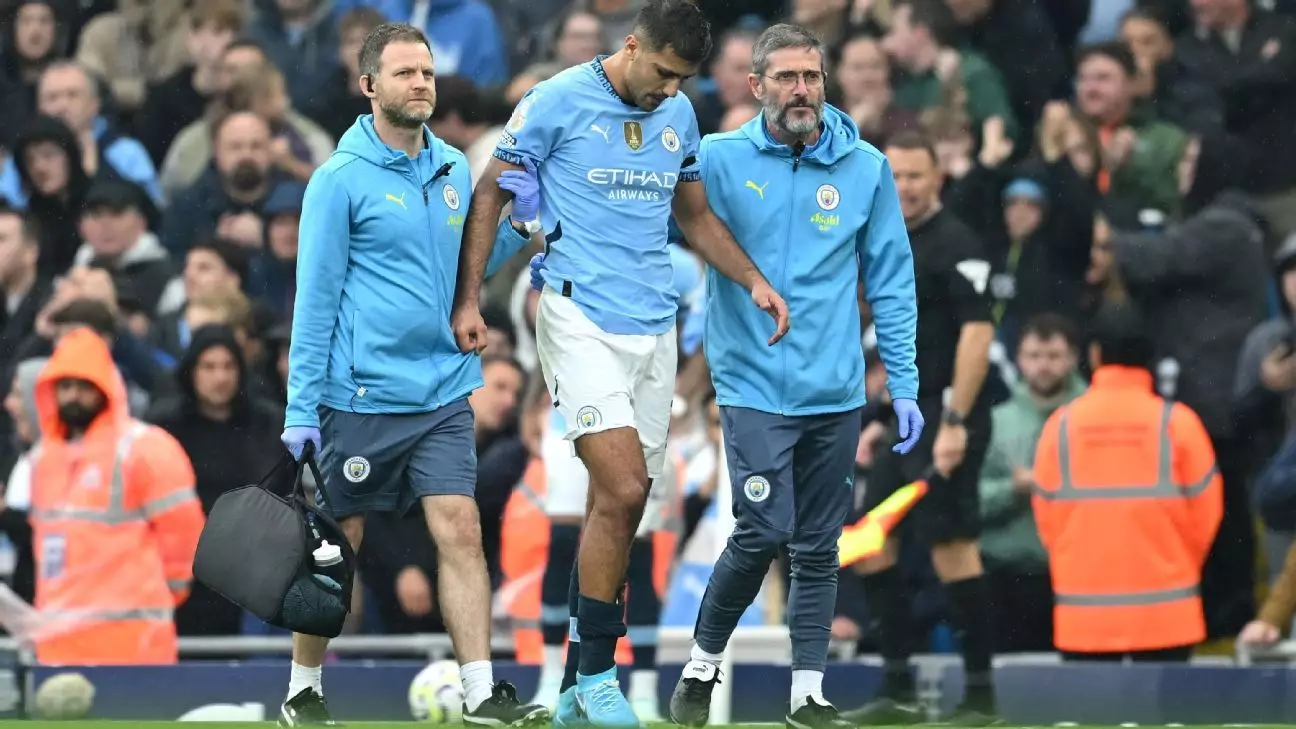The world of football is approaching a pivotal moment, one that could redefine the relationship between players, leagues, and governing bodies. Amid rising frustration among players regarding fixture congestion, LaLiga president Javier Tebas has indicated that a player strike is not beyond the realm of possibility. With the expansion of club competitions and an increasingly dense calendar, the concerns articulated by players are not only valid but warrant immediate attention.
Fixture congestion has become an acute issue in modern football, where players’ physical and mental resilience is constantly tested. The recent expansion of UEFA’s club competitions, as well as FIFA’s revamped Club World Cup, has positioned this season as the longest in history. This expansion has repercussions, with players like Manchester City’s Rodri not just voicing concerns but also signaling that a collective action could be on the table if conditions do not improve.
The call for action from players is underscored by the warnings of prominent managers from various leagues, including Pep Guardiola and Mikel Arteta of the Premier League, who have stressed the mental and physical toll on athletes. The relentless schedule demands that players engage in multiple competitions across various time zones, which has led to fatigue and injuries. Carlo Ancelotti, coach of Real Madrid, has even suggested that players might consider taking pay cuts if it results in fewer games, illustrating the extent of their frustration.
Tebas’s support for players’ grievances emphasizes the fundamental premise that all workers, including professional football players, have the right to advocate for their wellbeing. The tensions surrounding fixture congestion represent a broader dialogue within sports about the balance between commercial interests and athlete welfare. As Tebas noted, “two plus two is four,” suggesting that the mathematical strain on players cannot be ignored nor indefinitely stretched for the sake of increasing match statistics or revenues.
The situation points towards an unsustainable model where player wellbeing is sacrificed on the altar of viewership and profitability. As football’s governing bodies continue to push for expanded competitions that promise larger audiences and higher revenues, they may find themselves at a crossroads where player solidarity could challenge these decisions.
There lies a pressing need for a re-evaluation of competition structures in football. Tebas boldly argued that certain competitions should either be reduced or eliminated entirely to preserve the sport’s integrity and protect its players. The calendar must be organized with input from all stakeholders, ensuring a collaborative and consultative approach rather than top-down mandates that inadequately consider the working conditions of athletes.
It is imperative that FIFA and UEFA redefine their frameworks to prioritize player health and manage logistics better, especially with the growing call for global tournaments. This re-evaluation is not merely a reactive measure but a proactive stance that could save the sport from potential crises that a strike might provoke.
Beyond the pressing matters of fixture congestion, LaLiga is eyeing international expansion, particularly with plans to host a regular season game in Miami. Tebas has pursued this ambition since 2018, reflecting the league’s desire to tap into the lucrative North American market. However, achieving this goal requires not only the agreement of various federations but also a strategic moment when players’ grueling schedules can accommodate such travel.
The postponement of the Miami game due to ongoing structural issues in Spain’s football governance, notably the absence of an elected federation president, illustrates the complexities intertwining local and global ambitions. Yet, the success of such ventures hinges on whether leagues can address the foundational issue of player workload before expanding their commercial reach.
The current landscape of football demands urgent reforms to ensure the longevity and health of its players. The imminent threat of a strike may act as a catalyst for change, prompting all stakeholders—players, federations, and organizers—to engage in constructive dialogue. As the world of football continually evolves, the integration of player welfare into the broader strategic framework will be essential. Without it, the sport may face dire consequences that extend far beyond the pitch, challenging the very essence of football itself. The time has come for a united front in addressing the challenges ahead.

